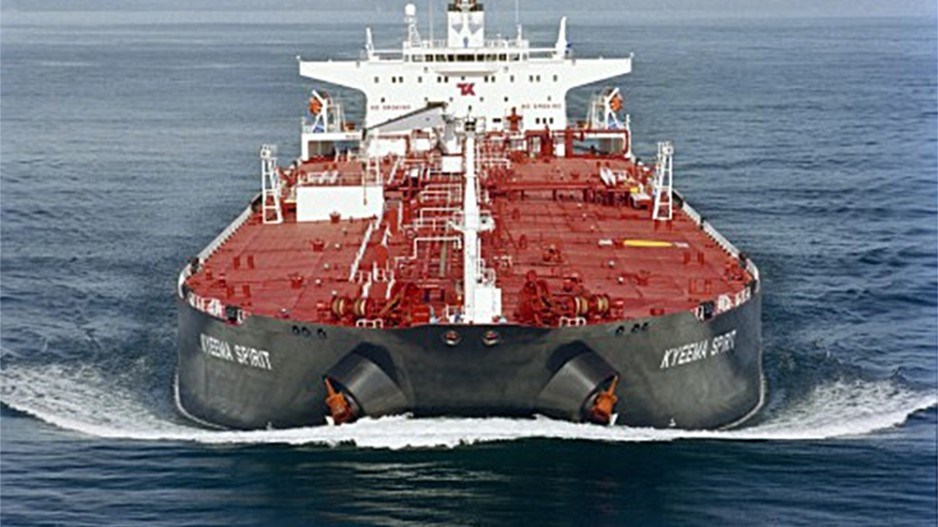A subsidiary of Vancouver’s Teekay Corp. (NYSE:TK) has signed a merger deal with an investment firm that will make it the world’s largest publicly listed shipping tanker company.
Teekay Tankers’ (NYSE:TNK) share-for-share buyout of Tanker Investments Ltd. (TIL) (OSLO:TIL) will add 18 mid-size conventional tankers worth an estimated US$500 million to its 83-ship fleet and create a company with total combined assets of US$2.4 billion.
As part of the deal, Teekay will assume about US$350 million of TIL’s long-term debt.
Teekay Tankers also acquired a remaining 50% interest in Teekay Operations, Teekay Corp.’s commercial and technical management operations wing, for about US$27 million.
TIL is an investment company specializing in the global tanker market.
Kevin Mackay, Teekay Tankers’ president and chief executive officer, said in a press release that TIL adds a larger and younger fleet to Teekay’s operations and “better positions Teekay Tankers to take advantage of the next tanker market upturn.”
He added that Teekay Operations’ acquisition completes his company’s “evolution into a fully-integrated conventional tanker platform with all management and operations now owned and operated solely by Teekay Tankers.”
Consolidation in the oil and liquefied natural gas shipping sector is mirroring mergers and new alliances in the global container shipping fleet, where overcapacity, record low rates and a slowing world economy resulted in major container shipping companies losing a collective US$13 billion in 2016.
Meanwhile, parent company Teekay Corp. reported a net loss of $US35.7 million on revenue of US$544 million in 2017’s first quarter compared with a net loss of US$6.1 million on revenue of US$641 million in the same quarter a year earlier.
Earlier this year, Teekay reported a net loss of US$123.1 million in 2016 compared with profit of US$82.15 million in 2015.
The tanker shipping company, which serves the global oil and liquefied natural gas sectors, has consolidated assets of about US$13 billion.
Teekay’s 2016 revenue, according to its corporate financials, was affected by a number of issues, including lower ship charter rates.




